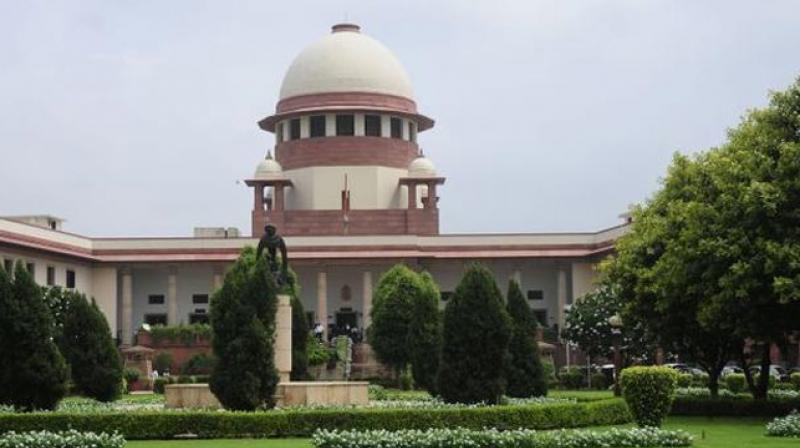Supreme Court awards Rs 3.50 lakh to Vizianagaram acid victim
Bench said the case at hand is an example of uncivilised and heartless crime committed by respondent Eswara Rao.

New Delhi: The Supreme Court on Monday awarded a compensation of Rs 3.50 lakh to an acid victim of Vizianagaram in Andhra Pradesh and slapped a sentence of one year imprisonment on the accused Gorripottu Eswara Rao.
The Hyderabad High Court for AP and Telangana state had let off the accused with one month’s imprisonment and Rs 6,000 fine for the offence committed in May 2003.
Giving this judgement a bench of justices Dipak Misra and R. Banumathi directed the Andhra Pradesh government to pay Rs 3 lakh to the victim Ravada Sasikala in three months and Rs 50,000 to be paid by the accused in six months.
Pulling up the High Court for showing leniency on the accused, the bench said the case at hand is an example of uncivilised and heartless crime committed by respondent Eswara Rao.
High Court view in acid case shocks us: SC
A bench of Justices Dipak Misra and R. Banumathi said, “It is completely unacceptable that concept of leniency can be conceived of in such a crime. A crime of this nature does not deserve any kind of clemency. It is individually as well as collectively intolerable.
The bench said the accused might have felt that his ego had been hurt by such a denial to the proposal for marriage or he might have suffered a sense of hollowness to his exaggerated sense of honour or might have been guided by the idea that revenge is the sweetest thing that one can be wedded to when there is no response to the unrequited love. But, whatever may be the situation, the criminal act, by no stre-tch of imagination, dese-rves any leniency or mercy.
The judges said, “The approach of the High Court shocks us and we have no hesitation in saying so. When there is medical evidence that there was an acid attack on the young girl and the circumstances having brought home by cogent evidence and the conviction is given the stamp of approval, there was no justification to reduce the sentence to the period of 30 days already undergone.” It set aside the High Court verdict and restored the sentence of one year in jail imposed by the trial court.

